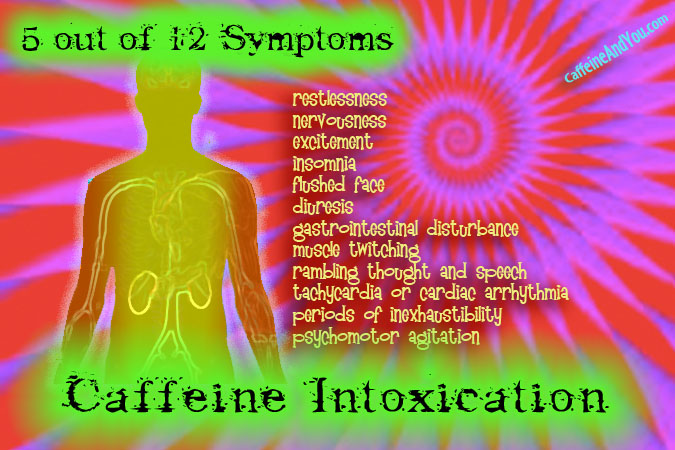 Can you get drunk on caffeine?
Can you get drunk on caffeine?
If you’ve ever slammed down a few too many coffees or Red Bulls and felt jitters or rapid heartbeat, you’ve experienced caffeine intoxication. You don’t even have to be a regular user: just a big blast of caffeine, or several blasts in a short period of time, can do it.
Caffeine intoxication is not the same thing as caffeine addiction. Addiction symptoms arise out of regular usage over a long period of time. Caffeine intoxication happens more immediately, when the caffeine has just been ingested or is still floating around in your system. Once the caffeine wears off, so does the intoxication. Here’s how to tell if someone may be experiencing caffeine intoxication…
Caffeine Intoxication: 5 of 12 Symptoms
Experts say to be diagnosed with “caffeine intoxication,” a person must display at least five of these symptoms, to the point where they impair a person’s social, work or other life functions.*
- restlessness
- nervousness
- excitement
- insomnia
- flushed face
- diuresis
- gastrointestinal disturbance
- muscle twitching
- rambling flow of thought and speech
- tachycardia or cardiac arrhythmia
- periods of inexhaustibility
- psychomotor agitation
You, your kid, your parents – anyone (habitual user or not) can experience caffeine intoxication by taking more caffeine than the body can handle. Common sources like energy drinks, 5-Hour Energy shots, and too many Cokes and coffees can do it. Because each person’s metabolism is different, there’s no set amount of caffeine to trigger caffeine intoxication. Just three cups of coffee in grandma, for instance, or a supersize Coke in a small child, might push their caffeine limit, but it all depends on the person. Consult a medical professional if you think caffeine intoxication might be a problem.
Next: Important info about caffeine safety and toxicity…
